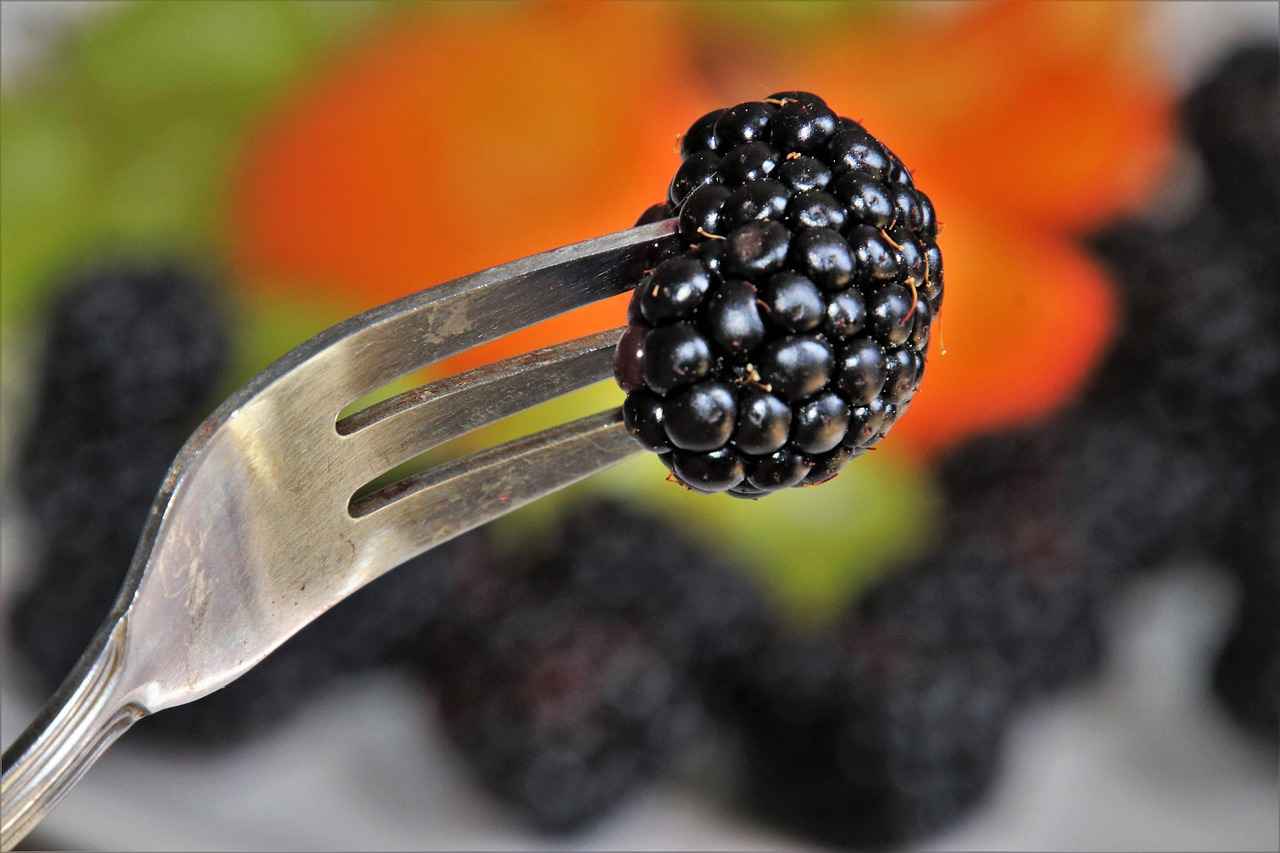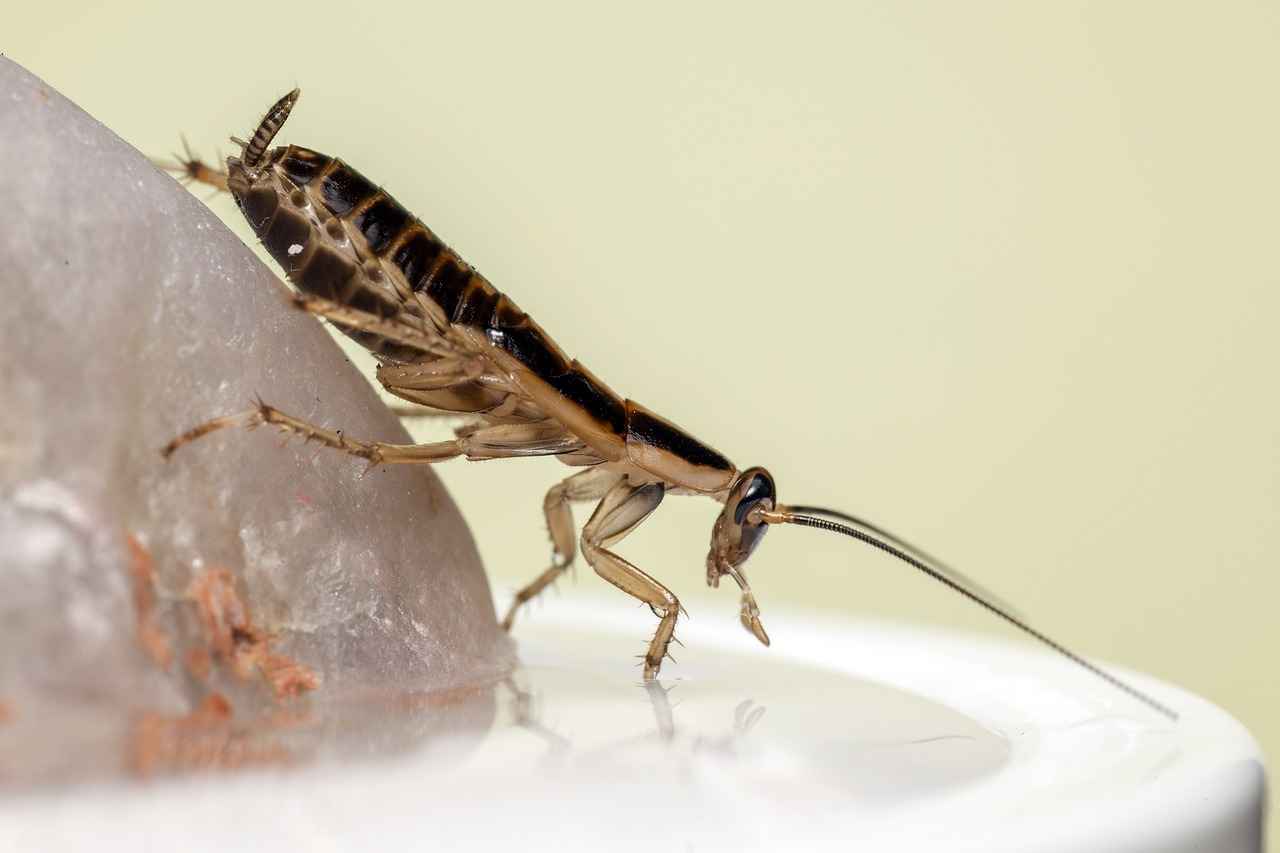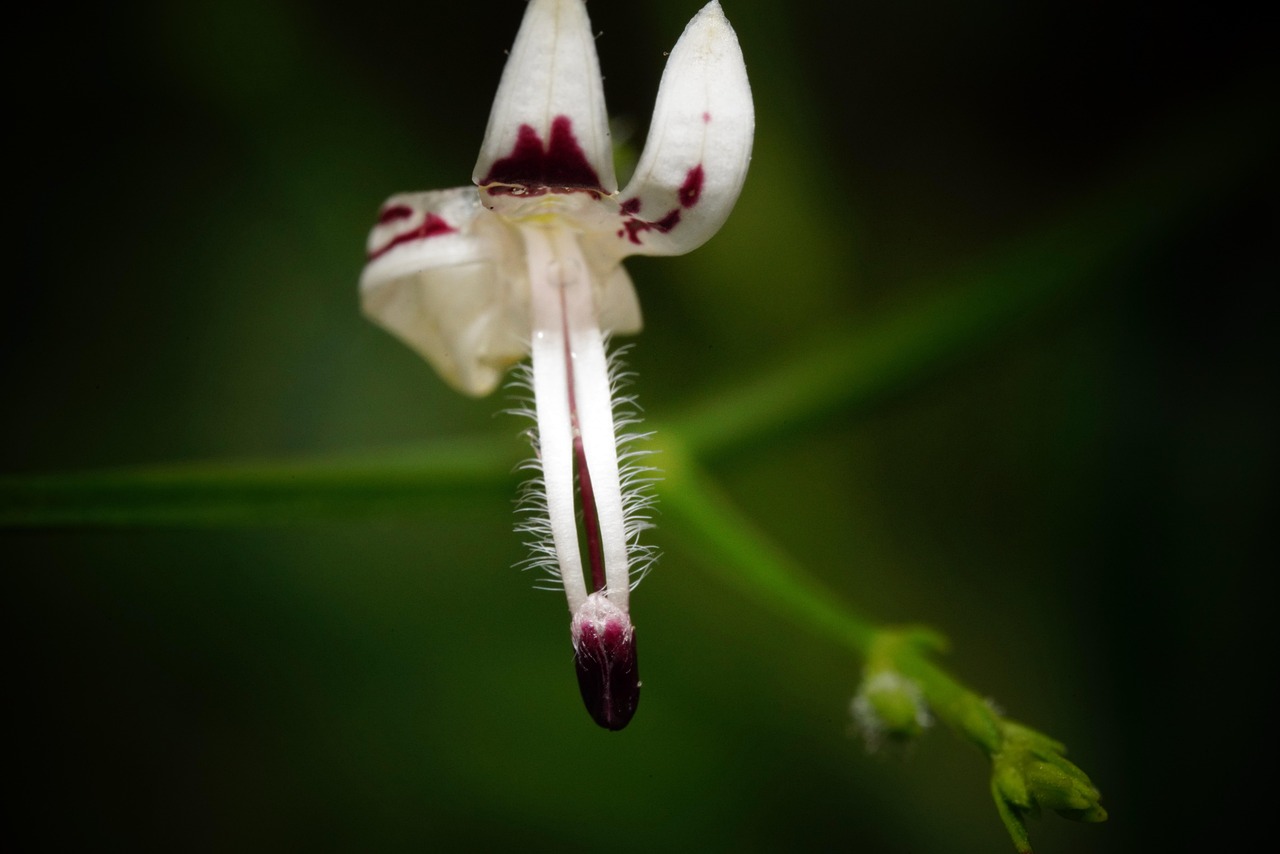This article delves into the numerous benefits of quercetin, a natural flavonoid, particularly in alleviating allergies and inflammation. By exploring its mechanisms, sources, and potential applications, readers can gain insights into how quercetin can contribute to better health.
What is Quercetin?
Quercetin is a potent antioxidant found in various fruits and vegetables. Its chemical structure allows it to play a significant role in human health, acting as a protective agent against oxidative stress. Common sources of quercetin include:
- Apples
- Onions
- Green tea
- Berries
How Quercetin Works in the Body
Understanding how quercetin functions at a cellular level is crucial. It possesses remarkable anti-inflammatory properties and interacts with immune responses effectively. Quercetin can inhibit the release of histamines, which are responsible for allergic reactions.
Quercetin’s Antioxidant Properties
Renowned for its antioxidant capabilities, quercetin combats oxidative stress and protects cells from damage caused by free radicals. This protection is vital for maintaining overall health.
Reducing Oxidative Stress
Oxidative stress is linked to various health issues, including chronic diseases. Quercetin helps mitigate this stress, thereby promoting better health outcomes.
Cell Protection Mechanisms
Quercetin aids in cellular protection, shielding cells from environmental toxins and stressors. This cellular defense is essential for maintaining optimal health.
Quercetin and Allergies
Quercetin’s potential to alleviate allergy symptoms is significant. Its antihistamine effects can reduce allergic reactions, making it a valuable ally for those suffering from seasonal allergies.
Food Sources of Quercetin
Incorporating quercetin-rich foods into your diet can enhance health. Foods high in quercetin include:
- Fruits: Apples, berries, grapes
- Vegetables: Onions, kale, broccoli
Potential Side Effects and Considerations
While quercetin is generally safe, it’s essential to be aware of potential side effects, such as gastrointestinal discomfort. Always consult with a healthcare provider before starting any new supplement.
Conclusion: Quercetin’s Role in Health
In summary, quercetin offers numerous health benefits, particularly for allergies and inflammation. Integrating quercetin into a balanced diet can significantly enhance overall health and well-being.

What is Quercetin?
Quercetin is a remarkable flavonoid known for its potent antioxidant properties. This natural compound is prevalent in a variety of fruits and vegetables, contributing significantly to human health. Understanding its chemical structure, natural sources, and health effects is essential for anyone looking to enhance their well-being through diet.
Structurally, quercetin is classified as a flavonoid, a type of polyphenolic compound. Its unique chemical structure includes multiple hydroxyl groups, which are responsible for its antioxidant capabilities. This allows quercetin to neutralize free radicals, reducing oxidative stress and preventing cellular damage. The molecular formula for quercetin is C15H10O7, highlighting its complex arrangement of carbon, hydrogen, and oxygen atoms.
Quercetin can be found in a wide range of natural sources. Some of the most common include:
- Fruits: Apples, berries (like blueberries and blackberries), grapes, and citrus fruits are rich in quercetin.
- Vegetables: Onions, kale, and broccoli are excellent sources, particularly red onions which contain high levels of this flavonoid.
- Herbs and Spices: Dill, cilantro, and capers also provide significant amounts of quercetin.
In terms of its role in human health, quercetin has been extensively studied for its potential benefits. Research suggests that it may help reduce inflammation, alleviate allergy symptoms, and even support cardiovascular health. By modulating the immune response and acting as a natural antihistamine, quercetin can be particularly beneficial for individuals suffering from seasonal allergies.
In conclusion, quercetin is a vital nutrient that plays a multifaceted role in promoting health. By incorporating quercetin-rich foods into your diet, you can harness its numerous benefits and support your overall well-being.

How Quercetin Works in the Body
Understanding the mechanisms of quercetin at a cellular level is essential for appreciating its health benefits. This natural flavonoid possesses significant anti-inflammatory properties and plays a crucial role in modulating immune responses. By exploring how quercetin interacts with various cellular pathways, we can better understand its potential therapeutic applications.
Quercetin is known to inhibit the activity of certain enzymes that are involved in the inflammatory process. For instance, it can suppress the production of pro-inflammatory cytokines, which are signaling molecules that promote inflammation. By doing so, quercetin helps to reduce the severity of inflammatory responses in the body, making it a valuable ally against conditions such as allergies and chronic inflammation.
Moreover, quercetin enhances the function of immune cells, particularly macrophages and lymphocytes. These cells are vital for the body’s defense mechanisms. Quercetin has been shown to improve the ability of macrophages to engulf pathogens and debris, thereby enhancing the immune response. Additionally, it may help regulate the activity of lymphocytes, which are crucial for adaptive immunity.
Another important aspect of quercetin’s action is its ability to stabilize mast cells. Mast cells are responsible for releasing histamine during allergic reactions. By stabilizing these cells, quercetin can reduce the release of histamine, leading to a decrease in allergy symptoms such as sneezing, itching, and swelling.
In summary, quercetin’s multifaceted role in the body is characterized by its anti-inflammatory effects and its ability to modulate immune responses. By understanding these processes, we can appreciate how incorporating quercetin-rich foods into our diet may support overall health and wellness.
Quercetin’s Antioxidant Properties
Quercetin is a remarkable flavonoid that has garnered significant attention for its powerful antioxidant properties. This section delves into how quercetin effectively combats oxidative stress, thereby playing a crucial role in protecting cells from the damaging effects of free radicals.
Oxidative stress occurs when there is an imbalance between free radicals and antioxidants in the body. Free radicals are unstable molecules that can cause cellular damage, leading to various health issues, including chronic diseases and aging. Quercetin, with its unique chemical structure, acts as a potent scavenger of these free radicals, neutralizing them before they can inflict harm.
- Mechanism of Action: Quercetin enhances the body’s natural defense mechanisms by boosting the production of endogenous antioxidants such as glutathione. This synergistic effect amplifies the overall antioxidant capacity, providing robust protection against oxidative damage.
- Cellular Protection: Beyond its role as a free radical scavenger, quercetin also stabilizes cell membranes, making them less susceptible to damage from environmental stressors. This protective mechanism is vital for maintaining cellular integrity and function.
- Anti-inflammatory Effects: Quercetin’s antioxidant properties extend to its ability to reduce inflammation, further mitigating oxidative stress. By inhibiting inflammatory pathways, quercetin helps to decrease the overall burden of oxidative damage in the body.
Research indicates that regular consumption of quercetin-rich foods can significantly enhance the body’s ability to combat oxidative stress. Foods such as apples, onions, and berries are excellent sources of this flavonoid, making them valuable additions to a health-conscious diet.
In conclusion, quercetin’s antioxidant properties are essential for protecting cells from oxidative stress and free radical damage. By incorporating quercetin into your diet, you can support your body’s natural defenses and promote overall health.
Reducing Oxidative Stress
Oxidative stress is a condition characterized by an imbalance between free radicals and antioxidants in the body, leading to cellular damage and various health issues. This phenomenon has been linked to numerous chronic diseases, including heart disease, diabetes, and cancer. Understanding how to combat oxidative stress is crucial for maintaining overall health.
Quercetin, a natural flavonoid found abundantly in fruits and vegetables, has emerged as a powerful ally in the fight against oxidative stress. Its potent antioxidant properties allow it to neutralize free radicals, thereby reducing cellular damage and promoting healthier bodily functions.
Research indicates that quercetin can enhance the body’s defense mechanisms against oxidative stress. By modulating inflammatory pathways and boosting the activity of antioxidant enzymes, quercetin plays a vital role in cellular protection. This is particularly important as chronic inflammation often exacerbates oxidative stress, creating a vicious cycle that can lead to further health complications.
In addition to its direct antioxidant effects, quercetin has been shown to improve mitochondrial function, which is essential for energy production and overall cellular health. By supporting mitochondrial efficiency, quercetin helps to ensure that cells can effectively manage oxidative stress and maintain their integrity.
Moreover, incorporating quercetin-rich foods into your diet can provide a natural source of this beneficial flavonoid. Foods such as onions, apples, berries, and green tea are excellent sources of quercetin, making it easier to include this powerful antioxidant in your daily meals.
In conclusion, quercetin’s ability to reduce oxidative stress has significant implications for overall health. By protecting cells from damage, enhancing mitochondrial function, and combating inflammation, quercetin stands out as a valuable component of a health-conscious diet. Embracing quercetin not only supports individual health but also contributes to a broader strategy of disease prevention and wellness.
Cell Protection Mechanisms
Quercetin, a natural flavonoid found in various fruits and vegetables, plays a pivotal role in protecting cells from environmental toxins and stressors. This section delves into the mechanisms through which quercetin aids in cellular protection, highlighting its significance in maintaining overall health.
One of the primary ways quercetin protects cells is through its antioxidant properties. By neutralizing free radicals, quercetin reduces oxidative stress, which can lead to cellular damage and various diseases. This antioxidant action is crucial in preventing the deterioration of cellular structures, including membranes, proteins, and DNA.
Moreover, quercetin helps to enhance the body’s natural defense mechanisms. It modulates the activity of various enzymes and proteins involved in the cellular response to stress, thereby promoting cellular resilience. For instance, quercetin has been shown to activate the Nrf2 pathway, a critical regulator of antioxidant defense and detoxification processes in the body.
Additionally, quercetin exhibits anti-inflammatory properties that contribute to cell protection. By inhibiting the release of pro-inflammatory cytokines, quercetin helps to reduce inflammation, which is often a precursor to cellular damage. This anti-inflammatory action is particularly beneficial in conditions where chronic inflammation is prevalent, such as arthritis and cardiovascular diseases.
Furthermore, quercetin’s ability to stabilize cell membranes enhances their integrity, making them less susceptible to damage from external stressors. This stabilization is vital for maintaining cellular homeostasis and function.
In summary, quercetin serves as a powerful ally in cellular protection through its antioxidant, anti-inflammatory, and membrane-stabilizing properties. Incorporating quercetin-rich foods into your diet can significantly contribute to your overall health and well-being.
Quercetin and Allergies
Quercetin, a natural flavonoid found in many fruits and vegetables, has garnered attention for its potential to alleviate allergy symptoms. This section will explore its antihistamine effects and how it can effectively reduce allergic reactions.
Allergies occur when the immune system overreacts to certain substances, known as allergens. Common allergens include pollen, dust mites, and pet dander. When these allergens enter the body, they trigger the release of histamines, leading to symptoms such as sneezing, itching, and inflammation. Quercetin, with its remarkable properties, can play a role in moderating these responses.
One of the primary ways quercetin exerts its effects is by acting as a natural antihistamine. It inhibits the release of histamines from mast cells, which are responsible for the allergic response. By stabilizing these cells, quercetin can help prevent the onset of allergy symptoms, providing relief for those suffering from seasonal allergies or other allergic conditions.
Additionally, quercetin possesses strong anti-inflammatory properties that further contribute to its effectiveness against allergies. By reducing inflammation in the body, quercetin can alleviate symptoms such as nasal congestion and swelling, making it easier for individuals to breathe and feel comfortable.
Research has shown that quercetin can be particularly beneficial for individuals with allergic rhinitis and asthma. A study highlighted that those who incorporated quercetin into their diet experienced a significant reduction in symptoms compared to those who did not.
In conclusion, the potential of quercetin to alleviate allergy symptoms is significant. Its dual action as an antihistamine and anti-inflammatory agent makes it a valuable addition to the diets of those prone to allergic reactions. By understanding how quercetin works, individuals can make informed choices about how to incorporate this powerful flavonoid into their daily lives for better health.

Food Sources of Quercetin
Incorporating quercetin-rich foods into your diet can significantly enhance your overall health. Quercetin, a potent antioxidant, is found in a variety of fruits and vegetables. By including these foods in your meals, you can harness the numerous benefits of this flavonoid. Below is a comprehensive list of foods high in quercetin, along with practical tips on how to integrate them into your daily diet.
| Food Item | Quercetin Content (mg per 100g) | Ways to Include in Meals |
|---|---|---|
| Red Onions | 33 | Add to salads or use in stir-fries. |
| Apples | 4.6 | Snack on raw or add to smoothies. |
| Blueberries | 6.2 | Top your breakfast yogurt or oatmeal. |
| Kale | 6.8 | Include in salads or smoothies. |
| Capers | 234 | Use as a condiment or in pasta dishes. |
| Cherries | 5.4 | Enjoy fresh or in desserts. |
To maximize the health benefits of quercetin, consider the following tips:
- Incorporate a variety of fruits and vegetables into your meals.
- Opt for raw or lightly cooked forms to preserve quercetin content.
- Experiment with different recipes to keep your meals exciting and nutritious.
By making these simple dietary adjustments, you can easily increase your quercetin intake and support your health. Remember, a balanced diet rich in antioxidants like quercetin is essential for maintaining overall well-being.
Fruits High in Quercetin
Quercetin is a natural flavonoid known for its anti-inflammatory and antioxidant properties. Incorporating fruits high in quercetin into your diet can significantly enhance your overall health. Below, we explore some of the most notable fruits rich in quercetin, along with their respective quercetin content.
| Fruit | Quercetin Content (mg per 100g) |
|---|---|
| Apples | 4.6 |
| Blueberries | 6.5 |
| Cherries | 3.0 |
| Grapes | 3.5 |
| Pears | 6.0 |
| Onions | 34.0 |
Among these fruits, apples stand out not only for their taste but also for their health benefits. They are particularly rich in quercetin, especially in the skin. Blueberries, known for their antioxidant properties, also provide a significant amount of quercetin, making them a great addition to smoothies or breakfast bowls.
In addition, cherries and grapes offer a delightful way to enjoy quercetin while satisfying your sweet tooth. Pears are another excellent source, and their versatility allows them to be enjoyed in salads, desserts, or on their own.
Incorporating these fruits into your daily diet can help maximize your intake of quercetin, potentially aiding in the reduction of inflammation and supporting your immune system. Consider adding a variety of these fruits to your meals to harness the full benefits of this powerful flavonoid.
Vegetables Rich in Quercetin
Quercetin is a remarkable flavonoid known for its anti-inflammatory and antioxidant properties. Incorporating quercetin-rich vegetables into your diet can significantly enhance your overall health. Below, we explore several key vegetables that are excellent sources of quercetin, along with their contributions to dietary intake.
| Vegetable | Quercetin Content (mg per 100g) | Health Benefits |
|---|---|---|
| Onions | 33 | Rich in antioxidants, supports heart health, and may reduce inflammation. |
| Shallots | 26 | Supports immune function and has anti-allergic properties. |
| Kale | 23 | Promotes eye health and may help lower cholesterol levels. |
| Broccoli | 21 | Contains sulforaphane, which has anti-cancer properties, and boosts detoxification. |
| Capers | 234 | High in antioxidants, supports digestion, and may help in weight management. |
In addition to the above vegetables, others such as spinach, bell peppers, and tomatoes also contribute to quercetin intake. Including a variety of these vegetables in your meals can not only enhance flavor but also provide a powerful boost of quercetin, promoting better health.
To maximize quercetin absorption, consider consuming these vegetables raw or lightly cooked, as high heat can diminish their flavonoid content. Experiment with salads, stir-fries, or smoothies to incorporate these nutrient-dense vegetables into your diet.
In conclusion, adding quercetin-rich vegetables to your daily meals is a simple yet effective way to support your immune system and overall wellness. By being mindful of your vegetable choices, you can harness the health benefits of quercetin while enjoying a diverse and flavorful diet.

Potential Side Effects and Considerations
While quercetin is generally considered safe for most individuals, it is crucial to be aware of its potential side effects and interactions with medications. Understanding these aspects can help you make informed decisions about incorporating quercetin into your health regimen.
- Common Side Effects: Some users may experience mild side effects such as headaches, digestive issues, or a tingling sensation. These reactions are typically rare and transient.
- Allergic Reactions: In rare cases, individuals may have an allergic reaction to quercetin, resulting in symptoms such as rash, itching, or swelling. If you notice any of these symptoms, it’s essential to discontinue use and consult a healthcare professional.
- Interactions with Medications: Quercetin may interact with certain medications, particularly those that affect liver enzymes. It is advisable to consult a healthcare provider if you are taking medications such as blood thinners, antihistamines, or chemotherapy drugs.
Additionally, individuals with specific health conditions, such as kidney disorders, should exercise caution and seek medical advice before using quercetin supplements. Pregnant or breastfeeding women should also consult their healthcare provider to ensure safety.
It’s essential to approach any supplement, including quercetin, with a balanced perspective. While it offers numerous health benefits, understanding the potential risks and interactions can help you use it more effectively and safely.
In conclusion, while quercetin can be a valuable addition to your diet for managing allergies and inflammation, being aware of its potential side effects and interactions is vital. Always prioritize communication with healthcare professionals when considering new supplements to ensure they align with your overall health strategy.

Conclusion: Quercetin’s Role in Health
In conclusion, quercetin emerges as a remarkable natural compound with a multitude of health benefits, especially in the realms of allergy relief and inflammation reduction. Its unique properties make it a valuable addition to a balanced diet, enhancing overall well-being.
Quercetin functions primarily as a potent antioxidant, neutralizing harmful free radicals that contribute to oxidative stress. This oxidative stress is linked to various chronic diseases, making quercetin’s role in combating it particularly significant. By reducing oxidative stress, quercetin not only protects cells but also supports the body’s immune response.
Moreover, its ability to act as a natural antihistamine provides relief for individuals suffering from allergies. Quercetin inhibits the release of histamines, thereby alleviating symptoms such as sneezing, itching, and nasal congestion. This dual action on both inflammation and allergic reactions underscores the importance of quercetin in managing health.
To reap the benefits of quercetin, it is advisable to incorporate foods rich in this flavonoid into your daily diet. Foods such as onions, apples, berries, and green tea are excellent sources. Regular consumption of these foods can significantly contribute to improving health outcomes.
In summary, integrating quercetin into your diet can lead to enhanced health, particularly for those dealing with allergies and inflammation. By recognizing its benefits and making conscious dietary choices, individuals can optimize their health and well-being.







